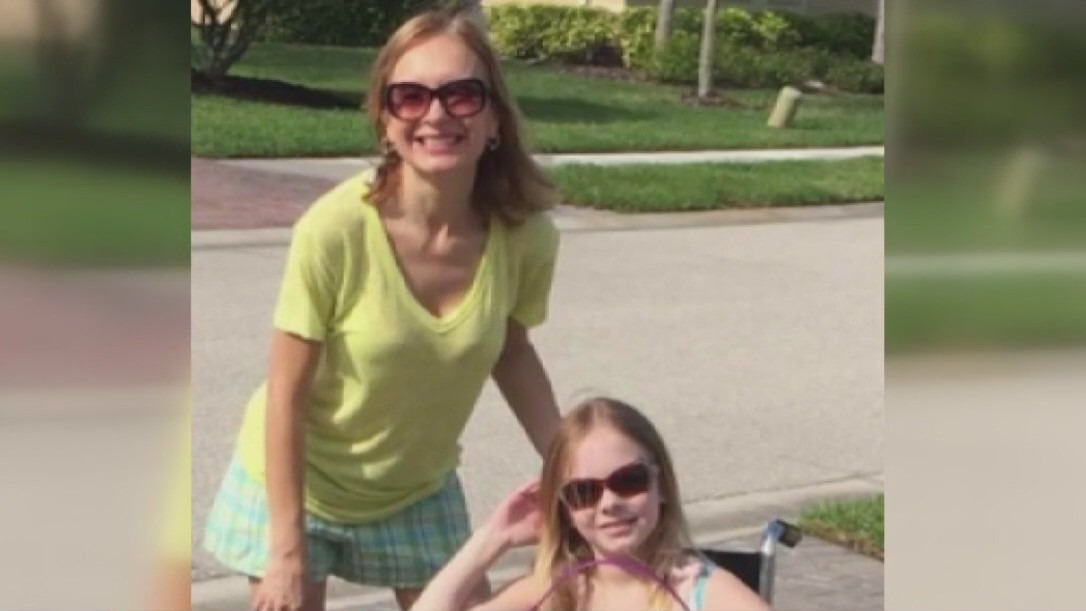‘Take Care of Maya’ trial: Plaintiff claims $220M lawsuit is about parental rights
VENICE, Fla. - Four weeks into the $220 million case against Johns Hopkins All Children’s Hospital that was at the heart of the Netflix documentary ‘Take Care of Maya’, attorney Gregory Anderson for the Kowalski family said the case is about standing up for parental rights.
"The case is about individual freedom," he said. "The freedom of parents to be able to make their own decisions to what is in the best interests of a child based on their own gathering of knowledge and their own request of information."
Anderson has maintained those rights were taken away from Jack and Beata Kowalski the moment Maya entered the St. Petersburg hospital. At 10 years old Maya had been undergoing Ketamine treatments, trying to reverse impacts from a diagnosis of Complex Regional Pain Syndrome.
Anderson said the hospital disregarded the opinion of Maya’s treating physicians. But, the hospital disagrees.
Attorney Ethen Shapiro said staff saw signs of medical child abuse and reported it.
"Unfortunately this case has caused a deep chilling effect in mandatory reporting throughout the country and All Children’s is here standing up for mandatory reporters that when we suspect child abuse we report it," said Shapiro.
Anderson said the end result hurt Maya more than it helped her and caused her mother to die by suicide.
"The hospital is trying to portray this as a savior of the child abuse system. That’s simply not the case," said Anderson. "That’s not what this case is about. It’s about the ability when you have a government agency aligning with a huge medical organization to make up their minds about something just because they disagree with the parents."
On Friday, jurors heard from a psychologist and an employee who worked in the hospital’s billing and coding department as the defense continued arguing its case.
Dr. Jennifer McCain, a psychologist with Tampa General Hospital, was the first to testify on Friday morning. She testified that she believed Maya had conversion disorder, which is a psychiatric disorder characterized by signs and symptoms affecting sensory or motor function inconsistent with patterns of known neurologic diseases or other medical conditions and significantly impact the patient’s ability to function.
The doctor added that when she told Beata Kowalski about conversion disorder, she did not agree with the diagnosis. She noted that Maya appeared to be more anxious than usual right before she was about to be discharged, and she advised the Kowalski’s to follow up with mental health experts after she returned home.
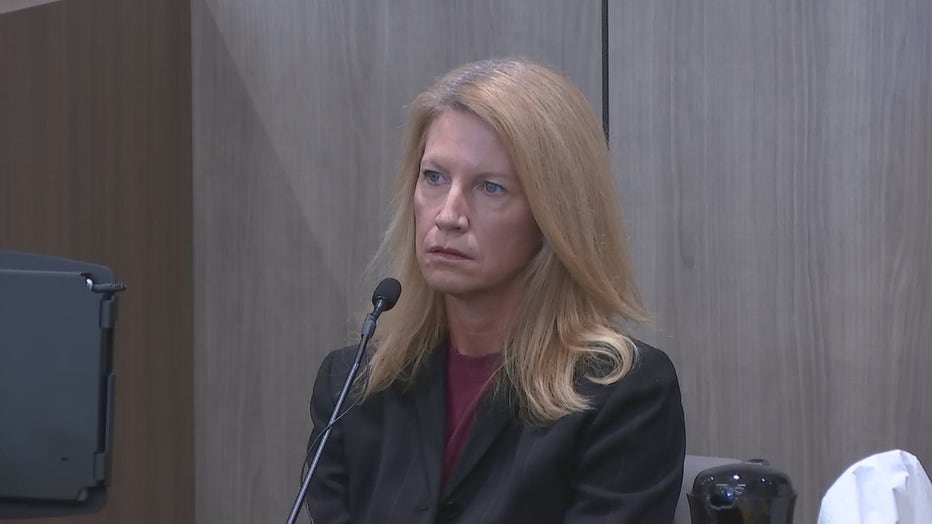
Dr. Jennifer McCain testified on Friday morning.
Jason Bankert, executive director of Revenue Cycle at Johns Hopkins All Children’s Hospital, also took the stand Friday morning. He explained to the jury how hospitals bill insurance companies for services rendered.
The Kowalski’s claim that even though staff at Johns Hopkins All Children’s Hospital didn’t believe Maya had Complex Regional Pain Syndrome, they were billed for it.
In documents presented to the jury, there was a diagnosis code on for Complex Regional Pain Syndrome and child neglect or abandonment among a list of other codes for 12 other diagnoses.
However, Bankert told the jury that the vast majority of the charges billed while Maya was in the hospital from October 2016-January 2017 were for room and board, respiratory therapy, physical therapy and occupational therapy.
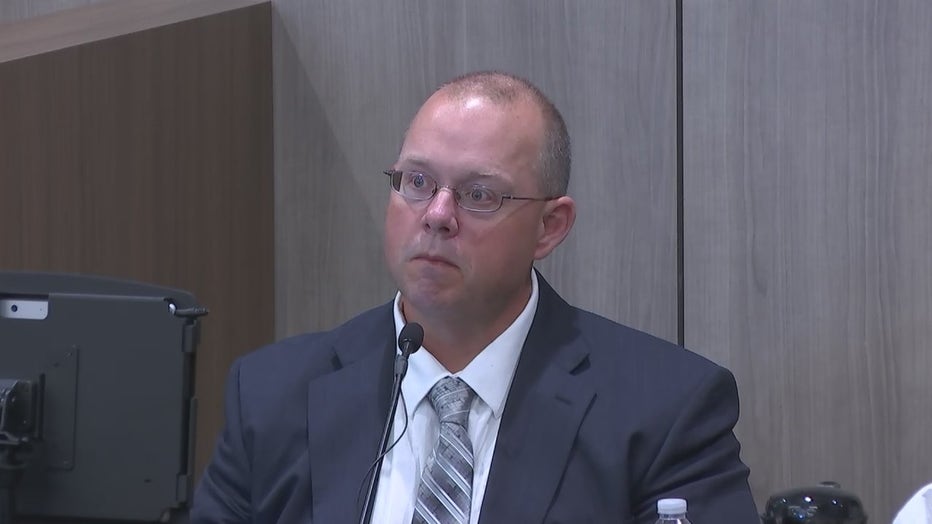
Jason Bankert, executive director of Revenue Cycle at Johns Hopkins All Children’s Hospital, took the stand Friday morning.
On Thursday, Dr. Sally Smith, a pediatrician, and child abuse expert, took the stand. She was the medical director for the Child Protection Team in Pinellas County when Maya was in the hospital. She had worked for All Children’s Hospital for 12 years before it was acquired by Johns Hopkins and still had privileges at the facility.
Dr. Smith explained that she was contacted by Dr. Teppa-Sanchez shortly after Maya was admitted to the hospital because she was concerned about the amount of ketamine the child had been receiving to treat Complex Regional Pain Syndrome or CRPS, which was diagnosed by a physician not associated with the hospital.
Dr. Teppa-Smith said she was also uneasy because she said Maya and her mother, Beata Kowalski, were demanding ketamine to treat her pain. She added that Beata Kowalski made statements about being stressed out and wanting to die and go to heaven. The doctor said Beata Kowalski told her Maya wanted to go to heaven as well when she was experiencing a pain flare up. Dr. Teppa-Sanchez testified she informed Beata Kowalski of resources that were available to help mother and daughter psychologically, but the offer for help was declined.
Dr. Smith told jurors she tried to give general advice in terms of how pediatricians can approach potential cases of Munchausen syndrome by proxy, or what she refers to as medical child abuse. However, she noted she could not do anything unless a report was made to the Child Abuse Hotline.
Two days later, medical staffers contacted the hotline, and a child abuse investigation began.

Dr. Sally Smith testifies in 'Take Care of Maya' trial
On Thursday, Dr. Sally Smith testified for the defense in a $220 million case against Johns Hopkins All Children’s Hospital that was the premise for the Netflix documentary ‘Take Care of Maya.’
Why was Maya kept in the hospital?
A judge ordered Maya to be sheltered at Johns Hopkins All Children's Hospital, under state custody, while the child abuse allegations were being investigated. She wasn’t allowed to be discharged to her family or another treatment facility and could not see her mother. Beata Kowalski died by suicide after being kept away from her daughter for 87 days.
Now, the Kowalski family is suing Johns Hopkins All Children’s Hospital for $220 million claiming its actions led Beata Kowalski to take her own life. The Kowalskis say Johns Hopkins All Children’s Hospital medically kidnapped Maya and battered her while in their care.
The hospital could have settled with the Kowalski family before the case came to a jury, but defense attorney Ethen Shapiro said the facility wanted to stand up for the hospital and its staff.
"There’s been a lot of allegations by the plaintiff that are completely unfounded that they have no evidence to support," said Shapiro.
He said allegations against the hospital have had an impact on reporting medical child abuse cases nationwide.
"The reason why All Children’s decided to take this case to trial was, because unfortunately, this case has caused a deep chilling effect in mandatory reporting throughout the country and All Children’s is here standing up for mandatory reporters," he explained.
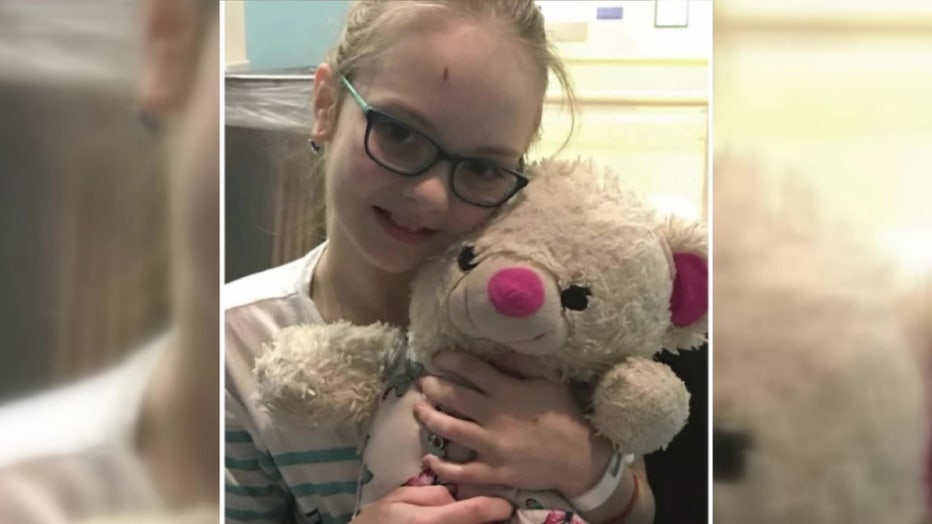
Pictured: Maya Kowalski
On the stand, Dr. Smith said she had no knowledge of Maya before Dr. Teppa Sanchez reached out to her. Dr. Smith added that she was called upon because over 32 years she had been known to hospital staff as a child abuse expert.
While Dr. Smith said she had no direct role in Maya Kowalski’s care in the hospital, the family's attorney Gregory Anderson pushed back. He presented evidence in which he said showed Smith had involvement in certain areas of Maya’s care.
"So were you part of the treatment or not?" he asked.
"I guess it's sort of threading the needle. I wasn't writing any orders. I didn't tell them which medications to stop or wean or anything like that, but as part of the whole evaluation of medical child abuse there's a component of what happens when they're not getting all these medications. so that specific part of it was in my role," replied Dr. Smith.
Dr. Smith's live testimony was the second time the jury heard from her. During the plaintiff's presentation, a video deposition of Dr. Smith was played in the courtroom. In it, she stated that she knew that four other physicians had diagnosed Maya with CRPS.
She said she believed Maya’s mother, Beata Kowalski, was committing medical child abuse though she admitted that she had never testified in a case involving CRPS in the past.
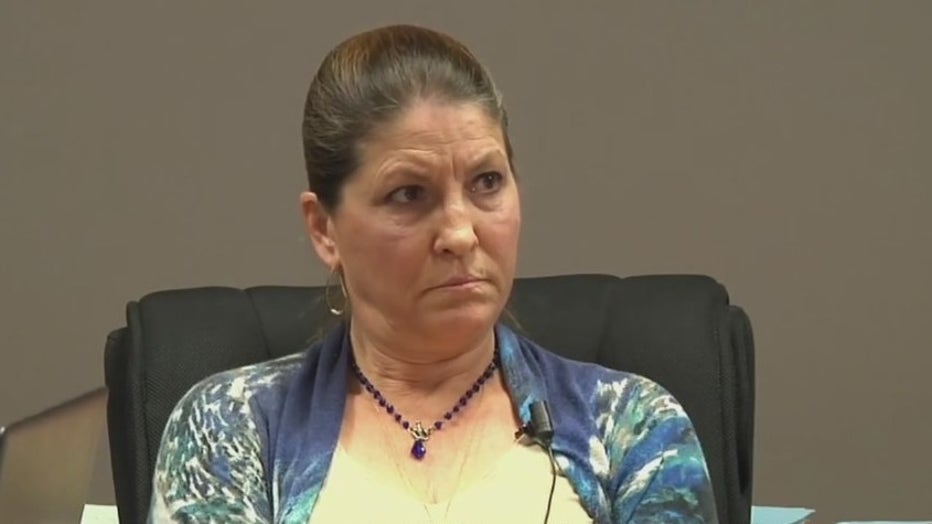
Jurors watched a video deposition of Dr. Sally Smith on Thursday.
"Upon review of all the extensive medical records, observations of the child in the hospital, review of the unconventional treatments including hyperbaric oxygen treatment and high dose ketamine treatment repeatedly. It was my opinion that there was ample evidence of medical child abuse and it appeared Mrs. Kowalski was the primary one who was resulting in instigating or perpetrating child abuse," Dr.Smith stated.
Dr. Smith also said she recalled that Dr. Anthony Kirkpatrick, who diagnosed Maya with CRPS and recommended ketamine treatment, advised her not to move forward with allegations that Beata Kowalski was suffering from Munchausen by proxy.
The Kowlaski family reportedly settled their dispute with Dr. Smith and the DCF Suncoast Center.
Why did medical staff believe Maya was being abused?
Dr. Teppa-Sanchez wasn't the only medical professional to suspect something was amiss when it came to Maya's condition and her ketamine treatments.
During her testimony, nurse practitioner Johannah Klink echoed the statements of Dr. Teppa-Sanchez. She testified that Maya appeared to show more intense pain symptoms when her mother was present.

Pictured: Maya and Beata Kowalski
She went on to state that she witnessed Maya moving in ways that someone in intense pain would not be able to move, such as get up on her knees on a hospital bed.
Klink also recalled Maya saying, "I’m tired of these lies. My whole life is a lie. That stuck me. That struck me very hard…It sounded to me like it was a cry for help."
However, during cross-examination, Klink told the jury that she never followed up on that statement or asked Maya to elaborate. She did note that she reported the statement to doctors.
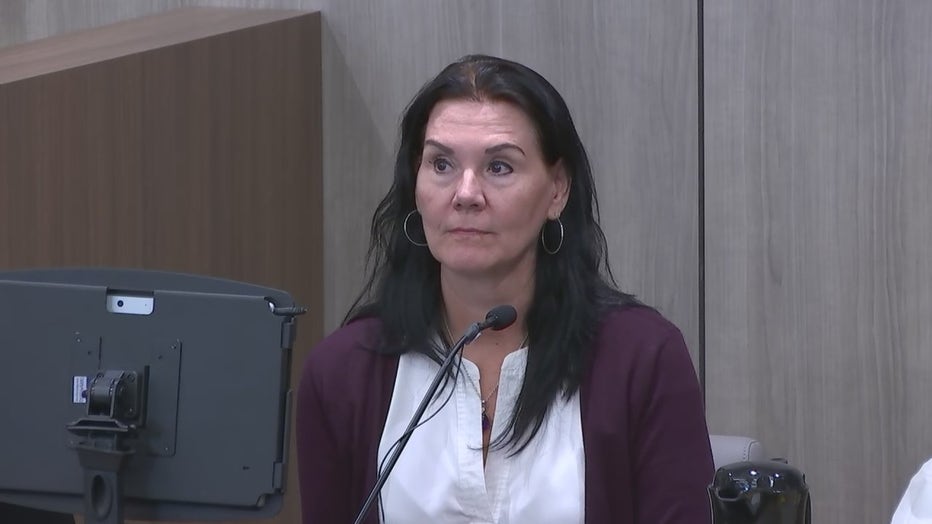
Nurse practitioner Johannah Klink testified on Thursday.
Before the plaintiffs rested, psychiatrist Dr. Scott Richards took the stand and told jurors how he believed Beata Kowalski felt she had no choice but to end her life.
"I believe the impulse happened for Beata Kowalski when she finally had the impulse that ‘I can do no more. I’ve gotten everyone in my life involved, no one can seem to help,’" said Dr. Richards.
"I liken it to someone who is impulsively having emotions, they write an email, and they hit send, and they wish they would't have sent it. In this case there was no delete. You couldn’t unsend the impulse," he added.

Psychiatrist testifies in 'Take Care of Maya' trial
On Monday, a physiatrist took the stand in a $220 million case against Johns Hopkins All Children's Hospital as defense attorneys began presenting their side.
Nurse practioner Bonnie Rice who worked at Tampa General Hospital and was a part of Maya’s care team in 2015 said Maya’s case was frustrating for the medical team because she said Maya and her mother weren’t open and she couldn’t move them down the road of recovery.
Rice added that Beata Kowalski was strictly seeking medical help for her daughter when the team at TGH suspected Maya’s pain may be psychological.
The team at TGH weren't the only ones to raise psychological suspicions.

Case workers testify for the defense in ‘Take Care of Maya’ trial
Jurors in the Take Care of Maya' trial heard testimonies from new witnesses on Tuesday, including staff members from Safe Children Coalition.
Dr. James Lewis, a neuropsychologist and a consultant for the Child Protection Team, told jurors he met with Maya after staff at Johns Hopkins All Children’s Hospital raised concerns that her mother may have been medically abusing her.
RELATED: ‘Take Care of Maya’ trial: Lawyers, judge to hash out jury instructions in $220 million case
In a video deposition, Dr. Lewis stated that he believed Maya may have been suffering from a psychological symptom of pain, which may have triggered physical pain symptoms.
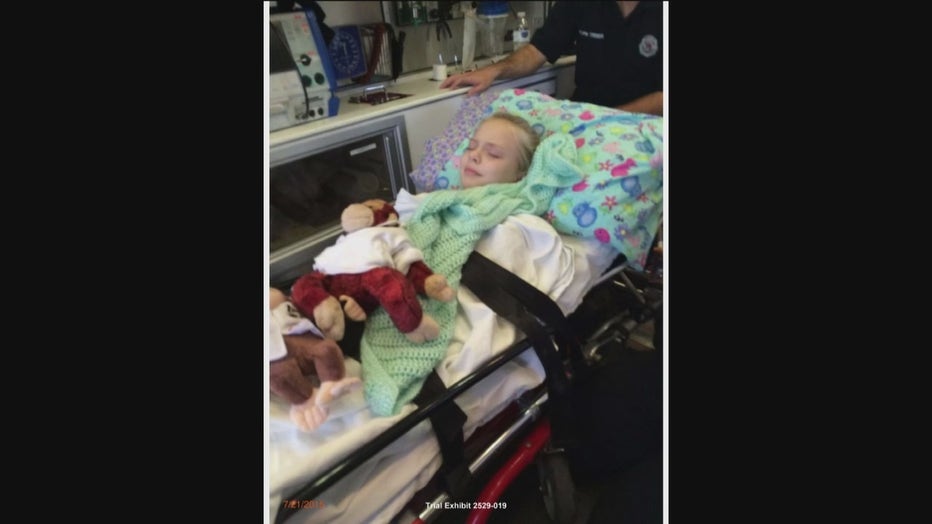
Pictured: Maya Kowalski
What happened to Maya in the hospital?
While on the stand, Maya said, during her three months in state custody at the hospital, there was a 48-hour period where she was isolated in a hospital room. Maya said staff wouldn't help her go to the bathroom and, instead, tried to see if she could actually walk, but she couldn't.
RELATED: ‘Take Care of Maya’ trial: Maya testifies in $220 million case against All Children’s Hospital
"They left me there for 48 hours under surveillance, which they did not tell me about. They had a commode in there, and they just put it far enough away from the bed. So, I would have to physically stand up and use the bathroom," said Maya. "I called the nurses whenever I had to use a bathroom because obviously, I'm not able to walk. And when they refused to help me go to the bathroom, I would defecate on myself."
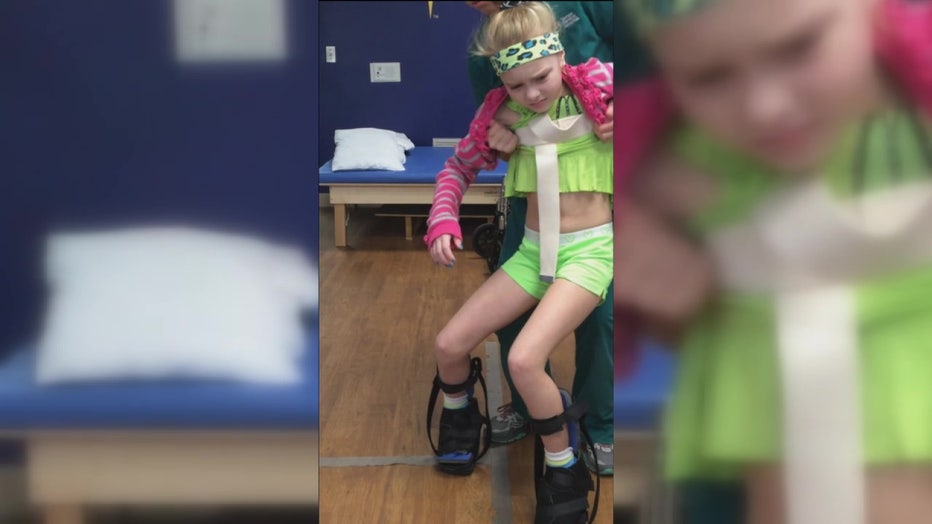
A video of Marissa Higgins helping Maya try to walk was shown in court on Friday.
She described some nurses as mean and unhelpful, and others as compassionate and willing to help. Her testimony was emotional at times as she expressed her frustration.
"When I express to them a symptom or like my pain, they would say, 'No, you're making it up,' or 'it's in your head,'" Maya said.

Maya Kowalski takes the stand
On Monday, Maya Kowalski took the stand in the 'Take Care of Maya' trial and told the jury about her experience being in state custody while at Johns Hopkins All Children’s Hospital for three months.
When registered nurse Lisa Rek took the stand, she told jurors that Maya was a good patient who seemed to have a positive relationship with the nurses.
She added that the nurses would often braid her hair or do ‘spa days’ with her when she seemed down.
Rek noted that Maya even nominated one of her nurses for a Daisy Award. A co-worker also nominated Rek was also nominated for a Daisy Award while she was caring for Maya in the hospital.
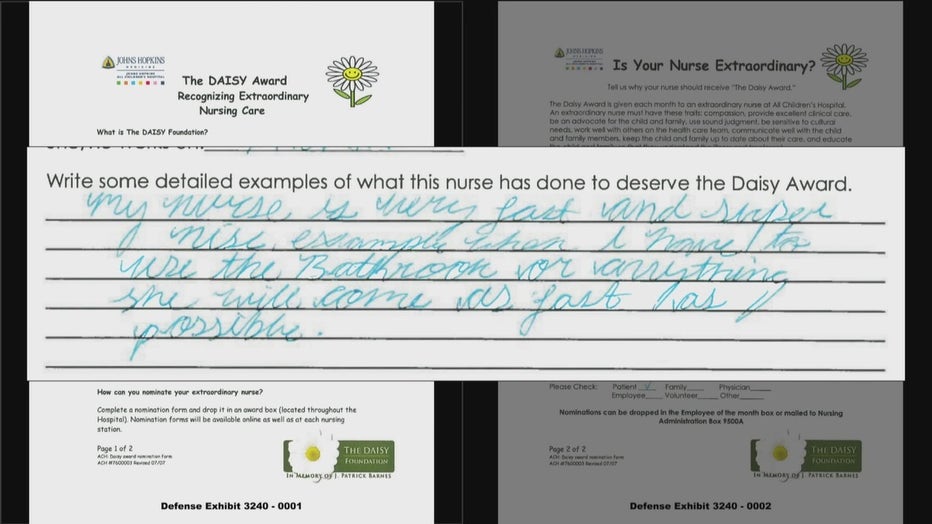
Maya nominated a nurse for a Daisy Award while she was at Johns Hopkins All Children's Hospital.
Rek described how she took Maya’s clothing home twice.
She did note that she did not ask permission from Maya’s parents prior to doing the laundry and said she did it, so Maya wouldn’t have to wear a hospital gown.
Rek also explained to the jury that Maya was at a heightened risk for falls after she fell while using the restroom. That's why, according to Rek, Maya's bathroom door and door to her room had to be open a crack while she was in the restroom.
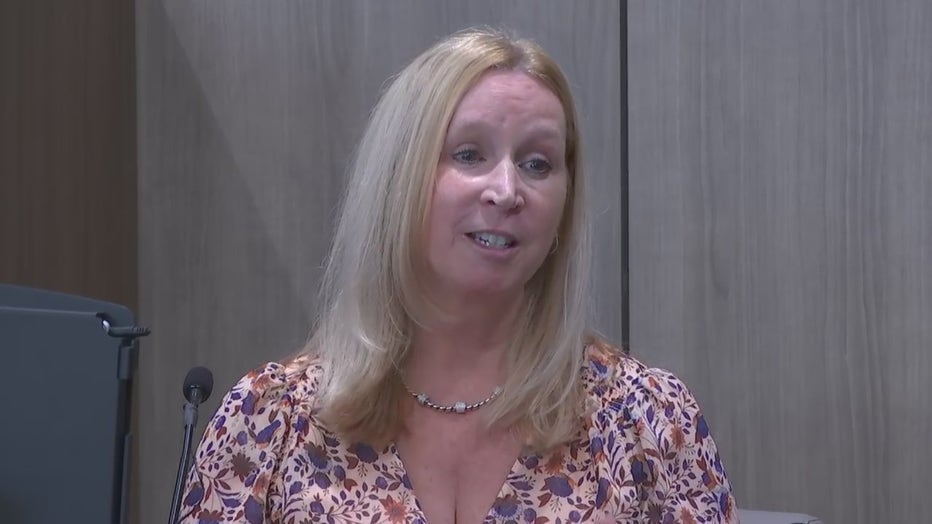
Registered Nurse Lisa Rek was the first witness to testify on Wednesday morning.
Why couldn't Maya's family take her home?
Jack Kowalski, Maya's father, testified that his family was told they would be arrested if they left the facility with Maya.
He went on to describe how the hospital treated those who tried to visit Maya.
"Did you learn through the course of this that they believed Beata was slipping ketamine through the holy water and wafers?" the Kowalski's family attorney Greg Anderson asked.
"I know it didn’t happen, but they had all different ideas," Jack Kowalski replied.

Maya Kowalski's dad testifies
Maya Kowalski's father, Jack Kowalski, described the pain his daughter was experiencing as she suffered with Complex Regional Pain Syndrome when he took the stand Monday afternoon in a $220 million case against Johns Hopkins All Children's Hospital featured in the Netflix documentary 'Take Care of Maya'
Anderson argued those theories resulted in Beata Kowalski’s desperation and death by suicide.
"I saw my child deteriorating. I go home, I see my wife deteriorating," shared Jack Kowalski while on the witness stand.
PREVIOUS: ‘Take Care of Maya’ trial: What will the jury hear? Lawyers argue over evidence, witnesses in case
Attorney Mark Zimmerman, who represented Maya when she was at Johns Hopkins All Children’s Hospital, said he felt as if the facility, and, in particular, social worker Catherine Bedy, tried to put up barriers for him to access Maya.
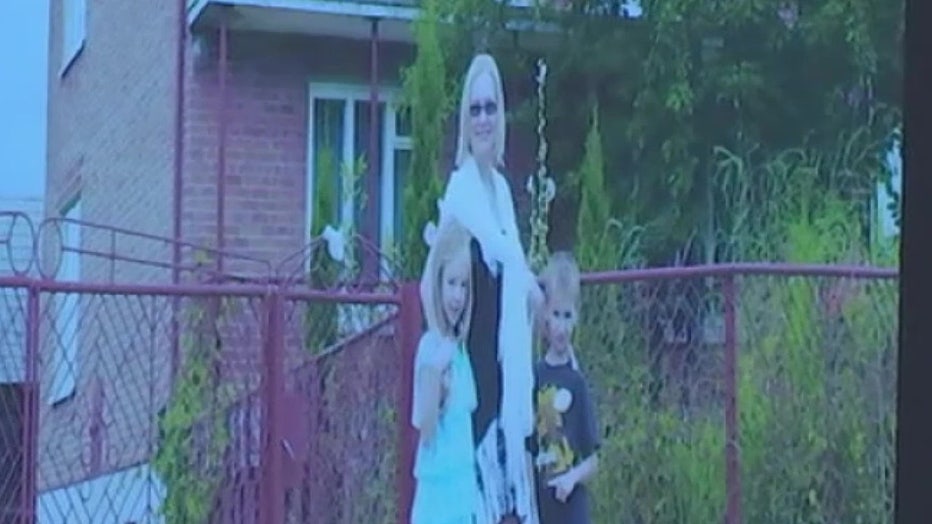
Beata Kowalski with Maya and Kyle
Bedy was the social worker assigned to Maya and the Kowalski family dropped its case against her shortly before the trial began.
A phone call between Beata Kowalski and Maya that was monitored by woman Maya identified as Bedy was also played in court. Charlotte La Porte, a manager for Pathways stated that her voice could be heard in a recorded call redirecting conversation between mother and daughter after Beata Kowalski mentioned the case.
However, Maya’s former Guardian Ad Litem, Jessica Blackrick, testified that Bedy cut a phone short a phone call in which Maya and her mother were praying together.
Blackrick added that a phone call that Maya wanted to make to her mother on Thanksgiving was blocked by Bedy because she couldn’t make herself available to monitor it. Blackrick went on to state that she never told Bedy to monitor those phone calls.
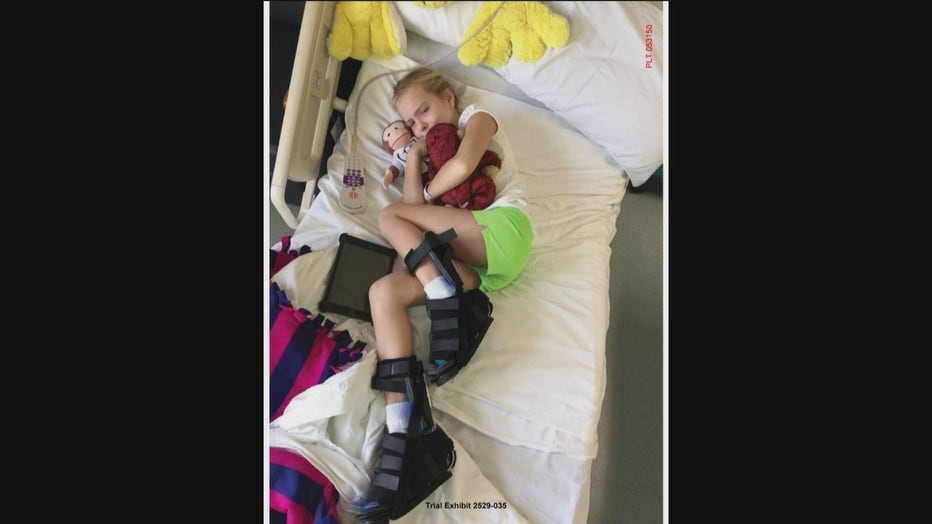
Pictured: Maya Kowalski with boots on her feet.
Lindsey Masica, who worked for DCF as a child protective investigator while Maya was at Johns Hopkins All Children’s Hospital stated during her testimony that she knew Bedy was listening in on phone calls between Maya and her mother.
The battery allegations from the Kowalski family stem from Bedy and others holding Maya down for unwanted photos and unwanted comforting.

Social worker deposition in 'Maya' trial
Jurors in a Sarasota County courtroom watched a video deposition from social worker Catherine Bedy as a $220 million case against Johns Hopkins All Children’s Hospital featured in the Netflix documentary ‘Take Care of Maya’ continued Thursday morning.
Bedy described how she met Maya and accused her mother, Beata Kowalski, of having Munchausen by proxy, but admitted she was not an expert on the disease and stated she had only worked with three similar cases.
Bedy said she saw Beata Kowalski demand ketamine for her daughter. Although the hospital says it believed the ketamine treatments were too dangerous, Bedy admitted that the facility did not take into consideration that Maya had been prescribed the ketamine treatments.

Maya Kowalski in hospital.
After seeing Bedy’s deposition, the jury was dismissed, while the court held a hearing on future evidence in the case. During the hearing, Maya’s father Jack Kowalski was asked about Bedy, and he said Maya couldn’t stand her.
RELATED: ‘Take Care of Maya’ trial: What will the jury hear? Lawyers argue over evidence, witnesses in case
"She stated she placed her on the lap. I never gave consent by the way on that. She stated that she used to come in and slap her leg to see if she was in pain, she said she wanted to adopt her that her mother was in a mental home, so she could be like her mother while in the hospital," he said.
Bedy is scheduled to testify for the defense on Monday, October 30.

Pictured: Maya at a Halloween event at the hospital.
Why was Maya taking ketamine?
Beata Kowalski, who was a registered nurse, learned about CRPS from an infusion patient and began researching the disease. Her research led her to Dr. Anthony Kirkpatrick, who diagnosed Maya with CRPS and prescribed ketamine treatments.
RELATED: ‘Take Care of Maya’ trial: Doctor who prescribed ketamine treatments testifies in $220 million case
Dr. Kirkpatrick told the jury that initially Maya said the ketamine treatments helped, but not enough so he recommended a high-intensity treatment in Mexico, which he said was a success.

Doctor testifies at ‘Take Care of Maya’ trial
Dr. Anthony Kirkpatrick, the physician who diagnosed Maya Kowalski with Complex Regional Pain Syndrome and prescribed ketamine treatments took the stand in a $220 million case against Johns Hopkins All Children’s Hospital featured in the Netflix documentary ‘Take Care of Maya’.
"He explained the procedure. He talked about how it’s been around for quite a long time. He mentioned it’s used for many things, and it’s safe," Jack Kowalski stated during testimony on Monday. "The side effect when they’re coming out of it is a hallucination for a short time, but then everything is back to normal."
Upon cross-examination of Jack Kowalski, defense attorneys for the hospital questioned the family’s decision to move forward with ketamine coma treatment in Mexico.
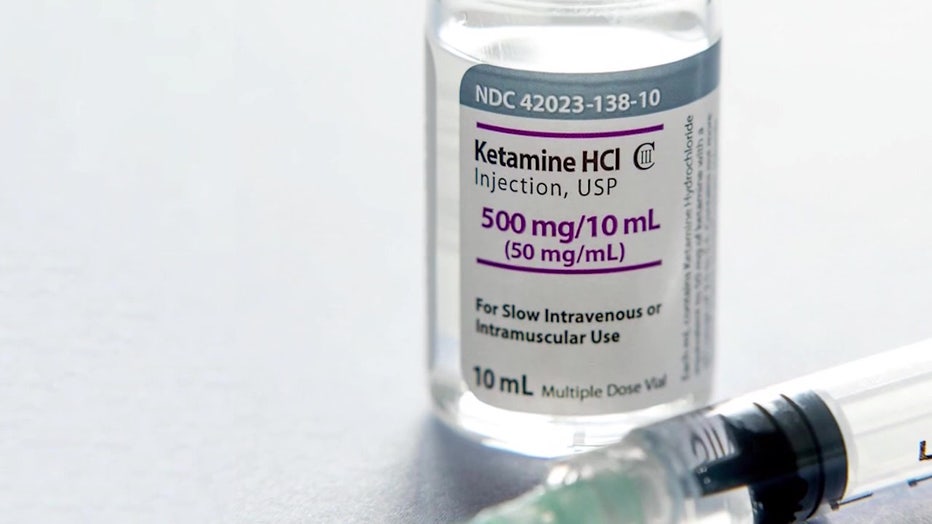
File: Ketamine
"Were you aware that the risk of death from that coma was 50%?" asked Ethen Shapiro.
"There is a risk in every procedure," Jack Kowalski responded.
"I understand that Mr. Kowalski but respectfully there’s a risk and then there’s a risk that’s a coin flip in which your daughter could pass. Did you know it was 50%" Shapiro pressed on.
RELATED: ‘Take Care of Maya’ trial: Doctor who's treated thousands for CRPS testifies on behalf of Maya
"They stated it was 50%, but they stated no one every died from that procedure," responded Kowalski.
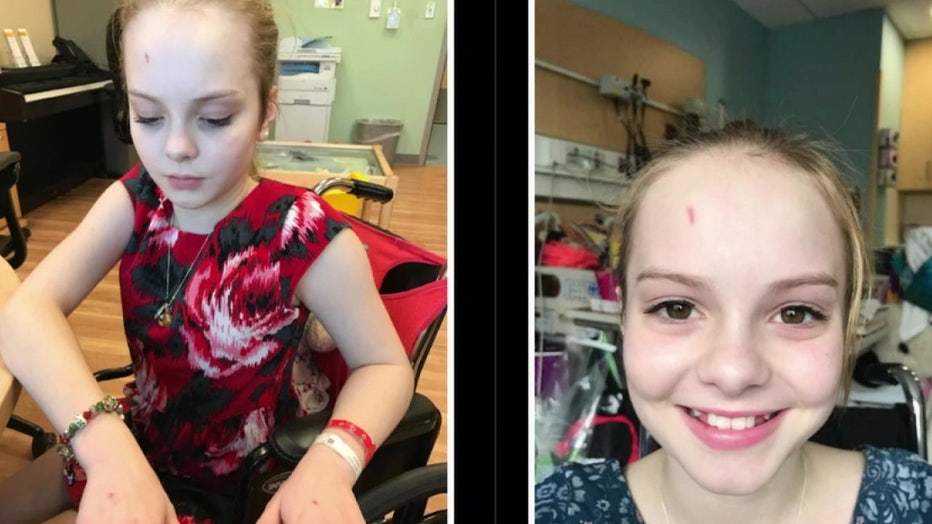
Side by side images of Maya Kowalski as she battled CRPS.
Maya’s father told the jury he and his family saw Maya slowly returning to herself following the ketamine therapy.
Dr. Kirkpatrick shared a similar testimony
"She could take care of herself, comb her hair, brush her teeth, eat with her hands and so forth" he recalled.
During a video deposition, Dr. Lewis stated that Maya had overheard doctors telling her mother that she had a 50 percent chance of dying during the ketamine treatment, which added to her anxiety.
RELATED: ‘Take Care of Maya’ trial: Doctor who prescribed ketamine treatments testifies in $220 million case
When Maya relapsed in 2016, the Kowalski family says staff at Johns Hopkins All Children's Hospital didn’t agree with the ketamine treatments.
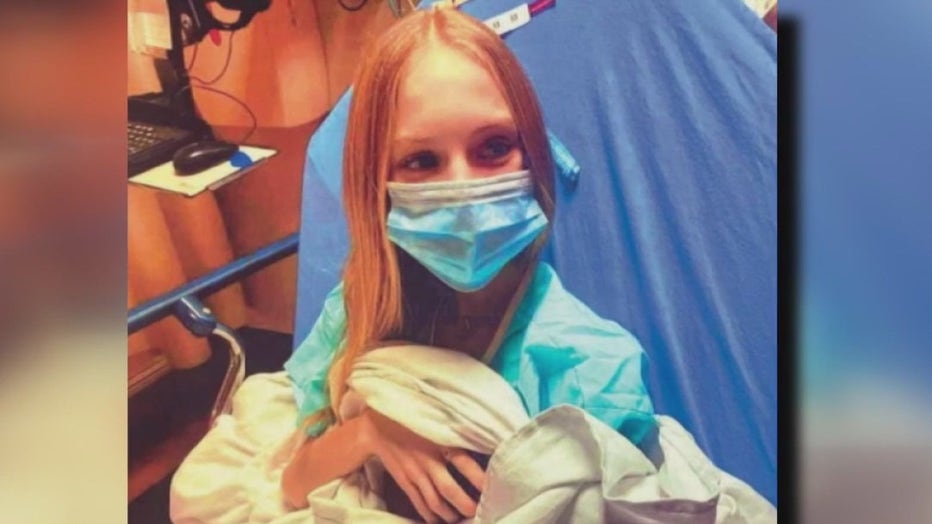
Maya Kowalski in the hospital.
Dr. Kirkpatrick said he discussed Maya’s condition with the hospital.
"I emphasized that if she doesn’t get the ketamine, it’s going to be a slow, painful death," Dr. Kirkpatrick stated.
Dr. Fernando Cantu, the doctor who administered Maya's ketamine coma, explained to the jury that while it will not cure CRPS, ketamine is a treatment for the disease.
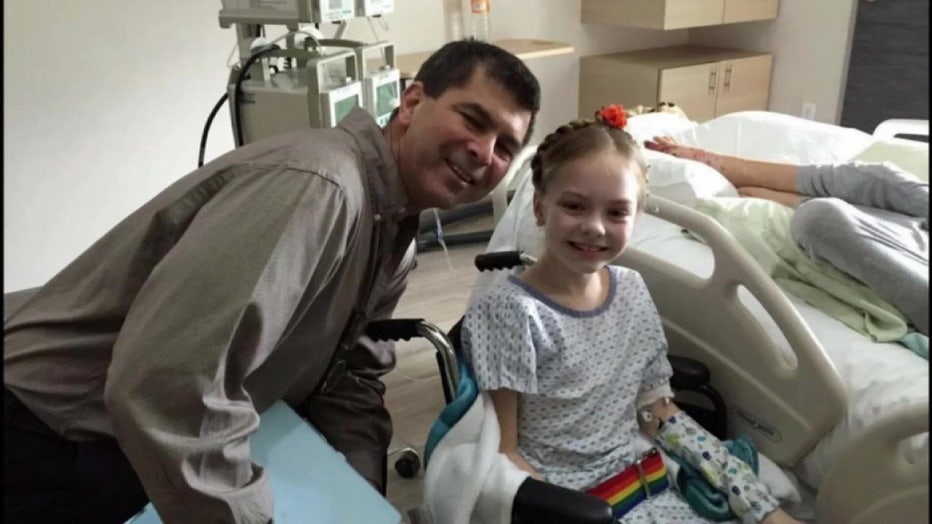
Maya and her physician Fernando Cantu.
Ketamine controversy
Dr. Elliot Krane, professor emeritus of anesthesiology from the Stanford University School of Medicine, who helped launch the pediatric pain center at Stanford University and treated lots of children with CRPS, testified that though he never treated Maya, he did review her medical records and does not believe she suffered from CRPS.
He also told the jury that he believed Maya had become dependent on ketamine and had developed a tolerance to the painkiller.
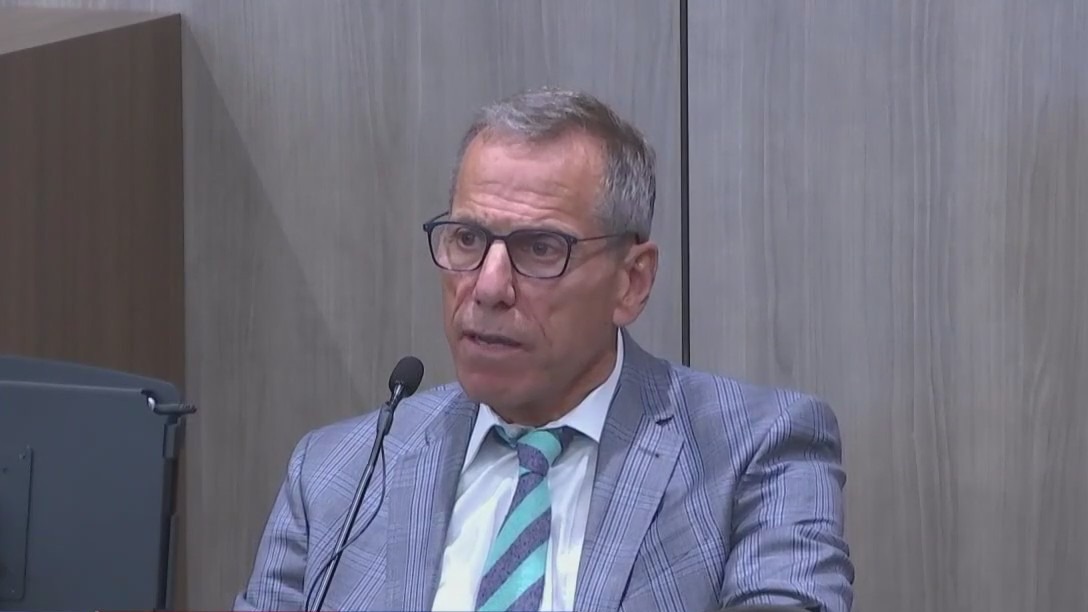
Medical expert testifies about Maya's treatment
Dr. Elliot Krane, an expert from Stanford University who has experience in pediatric pain management and Complex Regional Pain Syndrome, took the stand on Tuesday morning for the defense and was cross-examined in the afternoon. He stated that the ketamine treatments Maya was given was not the standard care for a child with CRPS.
"They can’t wait to get their next dosage of ketamine, they’re anxious, sometimes begging for ketamine. They feel pain, because it’s all the opposite of what ketamine does," Dr. Krane said.
Medical staff at Johns Hopkins All Children's Hospital told jurors that Maya was swearing at them and demanding sedatives when she was brought to the facility in October 2016 for what she described as a flare up from CRPS. Dr. Krane stated that he believes the abdominal pain that led Maya's parents to bring her to the hospital in 2016 was actually caused by ketamine.
RELATED: ‘Take Care of Maya’ trial: Maya testifies again in $220 million case against All Children’s Hospital
Under oath, Maya told jurors her condition would leave her screaming in pain and unable to walk at the time.

Maya Kowalski returns to the stand
Maya Kowalski returned to the stand Friday in the "Take Care of Maya" trial happening in Sarasota County. Her family is suing for millions after what they say was medical kidnapping by Johns Hopkins All Children's Hospital.
She explained that the ketamine treatment worked, and she was improving until October 2016, when she says she experienced a flare up of pain.
However, Dr. Krane stated that Maya was receiving 10 times the amount of ketamine for someone her size and she should have been receiving physical, occupational and psychological therapy for the pain she said she was experiencing.
Dr. Krane wasn't the only physician surprised by the amount of ketamine Maya was taking.
"I was quite surprised and shocked at the amount of ketamine that was reported, "stated Dr. Richard Andrew Elliot, an anesthesiologist at Johns Hopkins All Children's Hospital. "They were way higher than any doses I had ever seen given to a child."

Doctors testify in 'Take Care of Maya' trial
On Monday, doctors testified about why they believed Beata Kowalski was suffering from Munchausen by proxy.
What is Complex Regional Pain Syndrome?
CRPS is a rare pain disease that can follow an injury, and it’s tough to diagnose and sufferers are sometimes accused of faking their pain.
There’s no cure for CRPS and treatments can range from acupuncture and nutrition to physical therapy and massage or ketamine therapy.
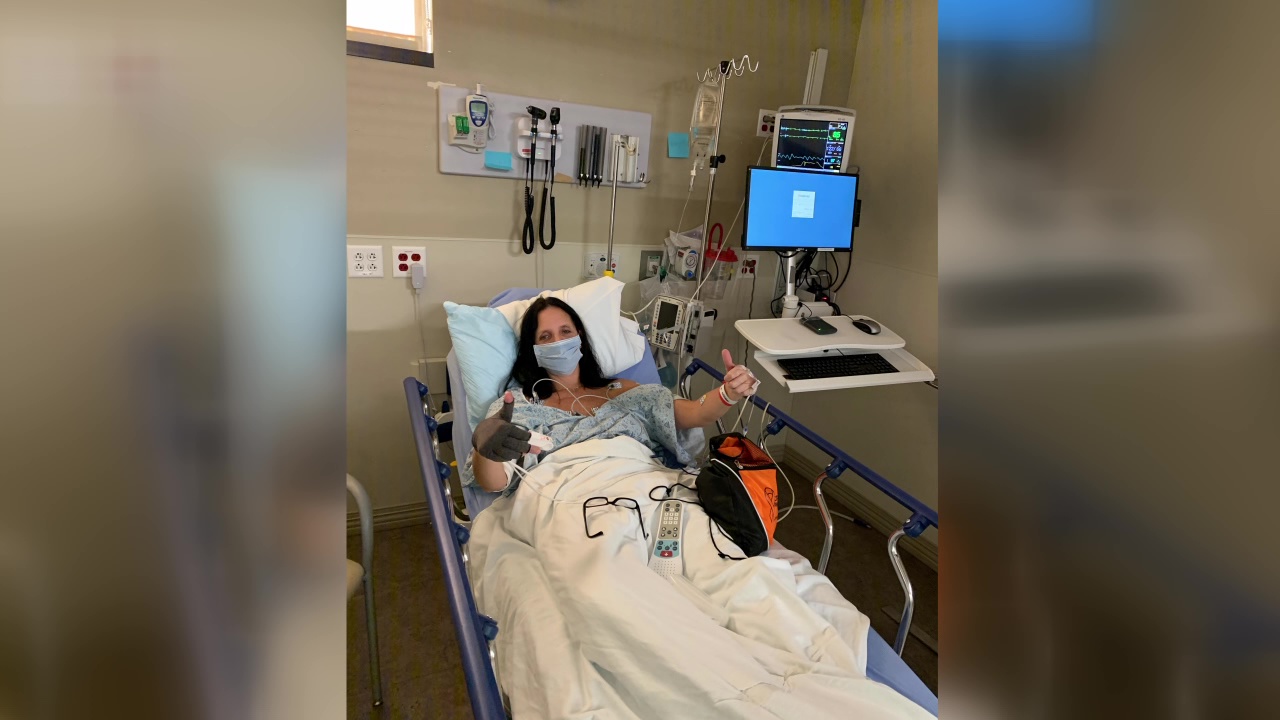
Woman describes living with CRPS
As the trial between the family of Maya Kowalski and Johns Hopkins All Children’s Hospital continues, a woman who is also living with CPRS described what living with the illness is like
The Kowalski family attorney argued that the hospital staff refused to believe Maya had CRPS even after Dr. Kirkpatrick, who did not work for All Children’s Hospital, confirmed her diagnosis.
PREVIOUS: ‘Take Care of Maya’ trial: Testimony continues in $200 million case against All Children’s Hospital
The Kowalski family claims that while hospital staff was accusing them of lying about CRPS and refusing to treat Maya, the facility was billing the family and their insurance more than half a million dollars for that exact cause of illness.
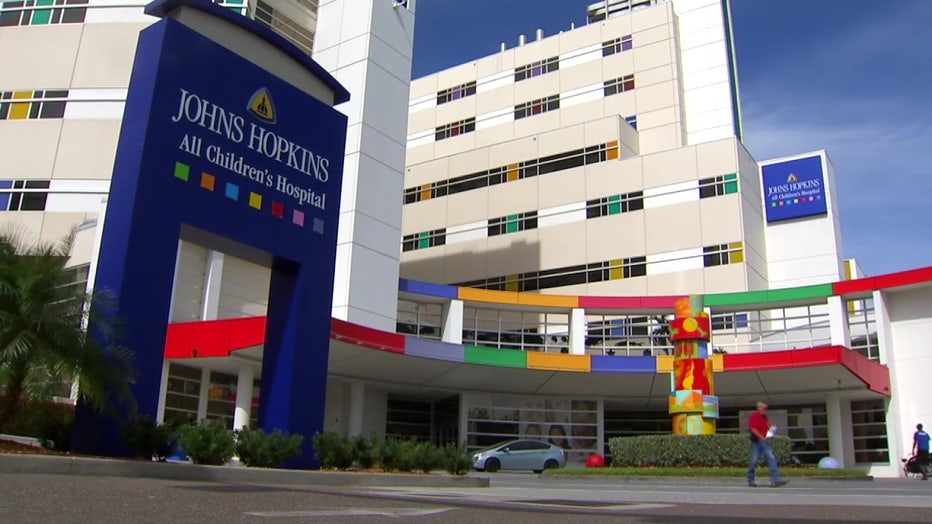
File: Johns Hopkins All Children's Hospital
Jurors will ultimately have to decide whether what happened to the Kowalski family could have been prevented and if the hospital’s actions pushed Beata Kowalski to take her own life.
"We ask in this case for you to consider not only compensatory damages to try to make them whole for these terrible things, but also punitive damages to deter them to punish them and to deter this type of behavior in the future," said Greg Anderson, Maya Kowalski’s lawyer.
An economist detailed expenses the family has incurred and will incur on the future and came up with $220 million.
The judge says he plans on giving the case to the jury by November 7 for deliberations.


